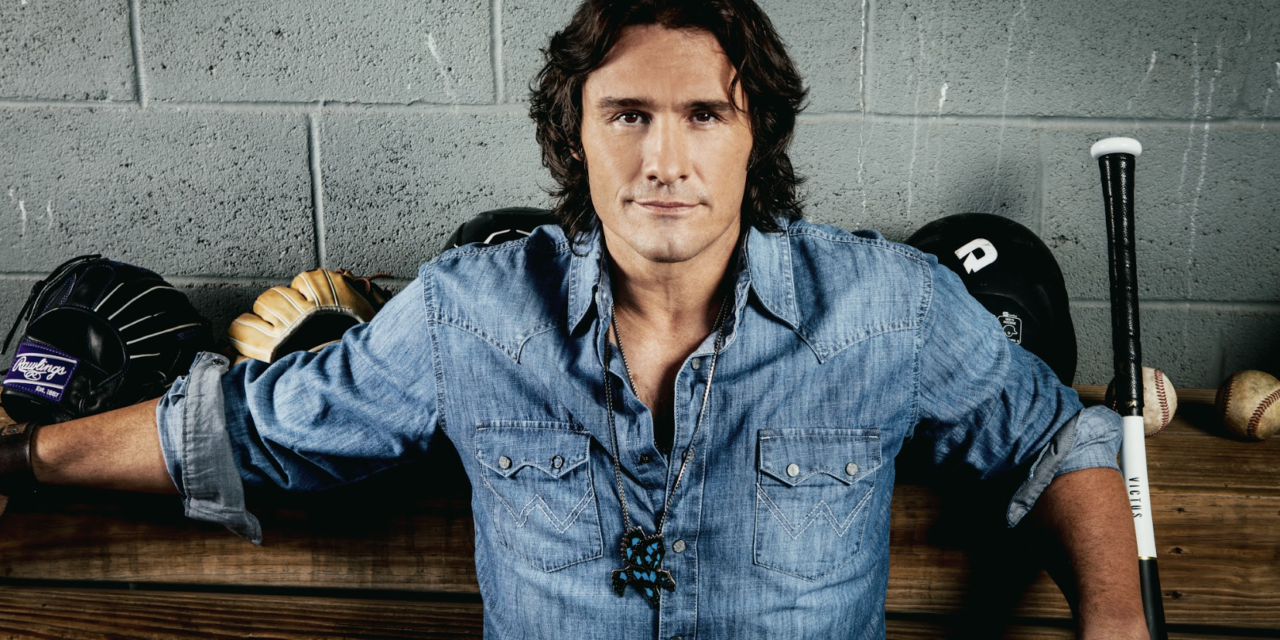Joe Nichols is entering his third decade of being a mainstay in country music — having always bridged the gap between the genre’s old-school roots and contemporary era. He’s a 21st century traditionalist — an artist who first broke onto the scene with 2002’s “The Impossible,” which was quickly followed by his first number one “Brokenheartsville” and has since had no shortage of top ten singles and plenty of #1’s as well.
Nichols has always done things his own way, blurring the boundaries between country music’s past and present along the way. This approach has earned Nichols multi-platinum success, three Grammy nominations, a CMA award, an ACM trophy, and the non-stop support of his fans along the way. Like many artists over the last year, the COVID-19 pandemic brought everything to a halt and put him in a tough spot.
But, 2020 wasn’t all a bad year for Nichols. After all, he signed with Quartz Hill Records — a new label founded by his old friend Benny Brown who had signed Nichols to Red Bow Records, before ultimately selling it a few years later due to the passing of his wife. “When I left Red Bow [Records], they had absorbed Red Bow into Broken Bow [Records] and I was never really — I wouldn’t say I was on the wrong page with Broken Bow after Benny Brown sold the label,” Nichols explains to me last week, before his headlining how in Columbus, Ohio, “I never really gelled with anybody the way I did with Benny Brown, he was my guy that signed me and I was his guy. “
His parting with Broken Bow really came to the front of his mind with the release of 2017’s Never Gets Old came out, and there was no real label backing or support behind the release. “I got the message when that was happening, that this was a relationship that wasn’t going to last,” Nichols explains. At this time, he had contemplated retiring from releasing new music and simply playing shows and resting on his laurels. But, he thought of his kids and wanting to instill a positive mindset of fighting when things get hard and pushing through even when it all seems bleak.
So when Brown hit him up one day in 2018 with a few songs that he got sent, Nichols checked them out — one being a Jon Pardi-wrote song called “Foot Long Stool” and another being “Home Run,” of course. He identified with the message behind “Home Run” back then, which he explains as a feel good story about life moving too fast and everyone just needing to slow down and return to home; whether it be your physical home, with friends, a spouse, or whatever it may be. It’s about that need for comfort and familiarity at times.
“I demo’d [‘Home Run’], the demo came out great, and then Benny called me during quarantine and said ‘I think I’ve been away from music long enough.’” He told Nichols he was going to start a new label and he was going to run it, throw in half and Sony would throw in the other half and told Nichols that he wanted to offer him a spot on the label. As Nichols recalls, “He said, ‘I don’t feel like you got justice where we were before and when I checked out, I left some of my artists behind and I want to make that right, I feel like you’ve got a lot of years ahead of you.’” For Nichols, that was the vote of confidence he needed. After pondering his relevance to modern country radio, the man who had his back years prior reassured him that his time to fade away had not come yet.
The best part about “Home Run” is that on top of the message and catchiness behind the single, is that it feels like it was written specifically for Nichols. As mentioned, he’s always prided himself on honoring his roots in the modern world, and “Home Run” keeps that going. He wouldn’t have it any other way, even if it hasn’t always been an easy road to travel — he tells me there was pushback with his 2002 album Man with a Memory on whether “Brokenheartsville” was too country and “The Impossible” was too inspirational. “There’s a couple songs on that album, ‘Joe’s Place’ and ‘Man with a Memory’ where I was literally told ‘Country radio will not play that, because they’re not ready to play that until things get country-er.’ I think that was a mistake, I think we should have rammed it down their throat because I think radio would have been radio for it. But we’ve really been fighting that fight for a long time.”
While 20 years ago there was push and pull on the release of singles for Nichols, he finally feels comfortable again with his label and being backed again by Benny Brown. Their history together is well-documented and that relationship is hard to put into words. “It’s big in so many ways,” Nichols says when I asked him to explain how it feels to have someone in their corner who wholeheartedly believes in them and what they want to do. “First of all, if you have a person like Benny who believes in [you], you have a person that signs checks or makes decision in a room full of important people, it matters because they make my voice matter that much more. I’m not just a needy artist at that point, my points become valid.” He goes on to explain how some labels will cut corners sometimes when it comes to cost and sacrifice the artist’s ability to push their record, but Brown looks at it differently. “But to have a guy like Benny go, ‘If it’s worth doing, let’s go do it. We want this album to launch the right way, let’s prep it up and make sure it’s got the best chance to win.’”
But Benny Brown isn’t the only familiar face for Nichols, as he collaborated with producers Derek George and Mickey Jack Cones on “Home Run,” who helped produce his 2013 record Crickets, which featured his two RIAA-Gold certified singles, “Yeah” and “Sunny and 75.” Nichols explains that his relationship with these two is important to him, and then way they work together is hard to replicate, both bouncing ideas off of one another and catching things that the other wouldn’t have necessarily caught. At the end of the day, when it was time for his first new single in over three years, there was no better group of guys for Nichols to be surrounded by than the ones he worked with.
Nichols has had hit country songs in the 2000’s, 2010’s, and now here we are in the 2020’s as he navigates another decade as a force to be reckoned with. His gameplay is the same as it’s always been: run with authenticity and let the rest carry you. Through all of the changes in country music, that authenticity and believability in what the artist is singing to you has always shined through. He acknowledges this himself, commenting that eventually the “smoke and mirrors” will be exposed as such. “I listen to the radio and I hear people that complain about what’s on the radio. There’s a lot of great arguments being made for some of the stuff that’s on the radio and I think ‘Man, nothing against this guy, but I don’t know who this is and I don’t know who that guy is, I woulda said they’re the same guy,” he says.
‘This is where guys like me fall into an incredibly lucky category. I may not be the best singer out here, but I know when I hear my song and some of those songs, I know that I can hear me. I know there’s people that can go, ‘I hate Joe Nichols, but I know that song [on the radio] is his.’ That today in this technological world, the distinct-ability, unique tone, something as little as an accent, some of those songs are more valuable than holding a note or hitting a lick. That you can tell a person apart is more currency than how much talent someone has.”
Never a doubt for talent, “Home Run” has Nichols coming back swinging for the fences. While the song continues to impact country radio, there’s certainly more music still to come. As far as how all of that will unfold, Nichols tells me he’s a little unsure of how it’s all going to go down, but “Screened In” is a song he mentions that may be released next, with an album coming out later this year and, personally, hoping for an October release.













